Keeping tradition alive, in hopes to one day return home to Crimea
A map of Crimea is drawn on the blackboard as a teacher educates students on the history of this state. Children, 8 and 9 years old, carefully take notes as some raise their hands to ask questions. This school is a program run by the non-profit, Krymska Rodyna, and hosts lessons every Saturday on all Crimean Tatar traditions. From history lessons to dance lessons, classes are offered to youth starting as early as 4 years old to adults.
Five years ago this month Crimea was occupied by Russia, and conflict broke out in eastern Ukraine, causing 1.5 million persons to be displaced. Many, including Crimean Tatars, fled to major cities, such as Odesa, Lviv, and Kyiv, thus starting new lives.
Anife Kurtseitova, 37, has been an activist fighting for the rights of the Crimean Tatar community. A strong advocate, she has participated in numerous interviews, educating others about her culture, and hosted fundraising campaigns for Crimean children of political prisoners. She decided not to let tragedy determine the fate of her community.
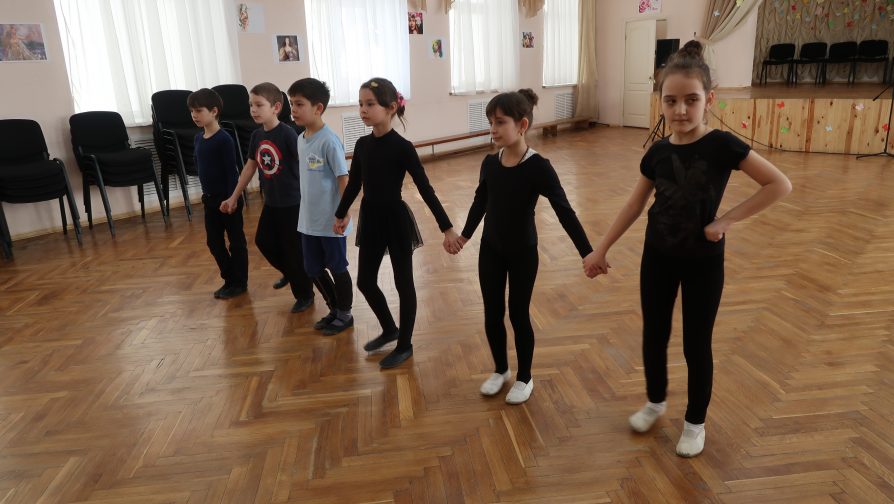
Building an NGO organization after moving to Kyiv, she began a Saturday school program focusing on all things relating to the Tatar culture. While negotiating with the Department of Education , she managed to arrange the permission to use several premises on the basis of one school in Kyiv during the time free from classes.
Parents and all community of IDPs from Crimea hope that the city authorities will pay attention to the successful activities of NGO and will provide premises for the creation of a unique Crimean-Tatar center for children. Given the fact that over the last year the number of visitors to the center has doubled. Currently, there are 100 pupils and about 50 families, who would like to join the school because there are nothing similar in Kyiv.
The children are divided by age, covering specific categories; dance lessons, music lessons, history lessons, and even the Tatar language. Traditional Tatar embroidery classes are also offered for adults. The students also host public dance performances in traditional costumes.
Running up and down the stairs speaking to mothers who are helping her coordinate the classes, Anife quickly caters to each teacher’s needs. In the waiting room, parents laid out cakes and desserts as they laughed and shared stories about their children. Everyone knew everyone, and the parents were just as dedicated as Anife in keeping the program running.
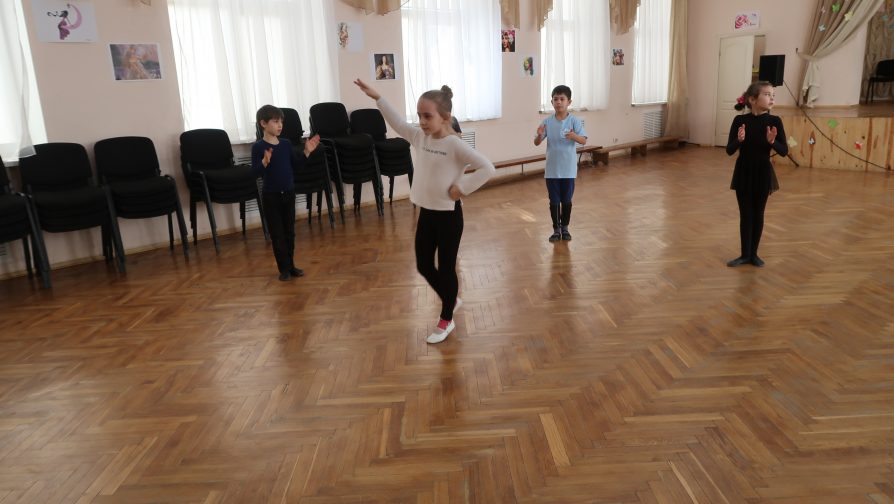
“It is important for me to keep our traditions and languages alive. We are waiting when the Crimean occupation will be over and all these families will be able to come back home,” says Anife.
Though it is unknown when this day will come, Anife refuses to give up hope, finding creative ways to keep the spirit of her heritage alive. Her pride represents leadership, and with her guidance the Tatar community became a team. With their efforts, their culture will live on to future generations regardless of any difficulty.
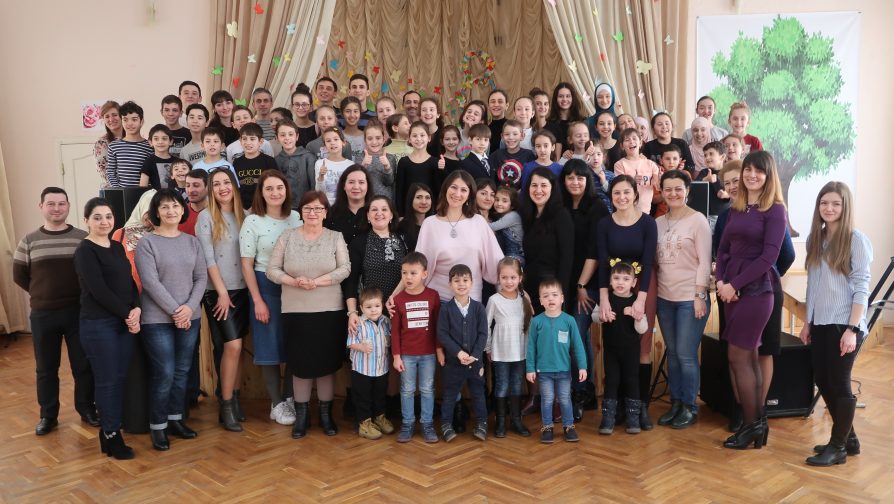
Community-based approach a core to protection and transcends to UNHCR’s work with displaced population. UNHCR Ukraine protection strategy is built on strengthening community based protection mechanisms initiated by the IDPs and host community to identify and respond to protection needs and create coping mechanisms.
UNHCR Ukraine community based protection activities included regular dialogue and communication with IDPs through protection monitoring and Participatory Assessment and Support to small community initiatives. The project was aimed at enhancing capacity of the NGO consisted of initiative of Crimean Tatar IDPs to provide activities for Crimean Tatar children aimed at maintaining their ethnic identity and cultural traditions on the mainland of Ukraine. In 2015 and 2016 UNHCR provided technical assistance (microphones and audio system) and 10 stage outfits for children to the NGO for conduction of classes of Crimean Tatar music, vocal and dancing for the children.
Page 7 of 35
-
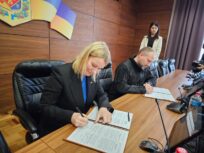
New cooperation agreement between UNHCR and Poltava Regional State Administration will reinforce support to and inclusion of displaced people
17 Oct 2023Poltava, 17 October 2023 – UNHCR, the UN Refugee Agency, and the Poltava Regional State Administration today signed a Memorandum of Understanding that solidifies and further strengthens ongoing cooperation aimed at supporting war-affected and displaced people who have found safety in the region. Areas of mutual engagement include provision of […]
-

Hroza – a Ukrainian village where “the volume of grief per square meter goes off scale”
16 Oct 2023In the footsteps of one of the first humanitarian responders on site after the attack on Hroza, psychologist Tetiana from UNHCR’s NGO partner Proliska.
-

Art therapy helped Ukrainian Iryna find solace, get a new profession and empower others
9 Oct 2023Iryna, a 44-year-old displaced woman who fled the war to the city of Uzhhorod in western Ukraine, has undergone a remarkable transformation since the start of the full-scale invasion. She moved from uncertainty and despair over her future to strength and self-sufficiency. Not only has she found her footing, but […]
-
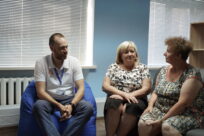
Broken Houses, Unbroken Spirits: Supporting displaced people with documentation
4 Oct 2023Maria, 66, is from the city of Kharkiv in north-eastern Ukraine. It was one of the first big cities, which came under heavy bombardment in the first days of the Russian full-scale invasion due to its proximity to the Russian border. Eighteen months after, Kharkiv remains exposed to regular shelling […]
-

Humanitarians revise monthly amount of cash assistance provided to people impacted by the war in Ukraine
28 Sep 2023Humanitarians in Ukraine are updating the monthly amount of the multi-purpose cash assistance provided to the most vulnerable people impacted by the war. From 1 October, each person will receive UAH 3,600, an increase from UAH 2,220 that had been provided until now. The change comes as the war continues […]
-
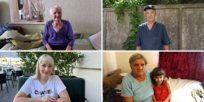
Critical needs, repairs and rent: four ways UNHCR’s cash assistance supports people affected by war
24 Sep 2023Giving choice and means The full-scale war in Ukraine has turned Ihnat’s life, like millions of other Ukrainians, upside down. Before the Russian invasion, he was a respectable man who owned a house, worked in a factory, earned additional money fixing household appliances and looked after cattle. He had planned […]
-
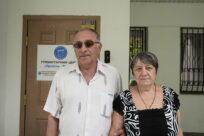
Fleeing War: A Miner’s Story of Displacement and Hope
20 Sep 2023“After 30 years of dedicated service at a coal mine, I was awarded the title of Honored Miner and retired. But now I’m a nobody, an empty space, a homeless person. We have lost everything,” says 73-year-old Ievhen, who, together with his 70-year-old wife Raisa, was forced to flee war-torn […]
-
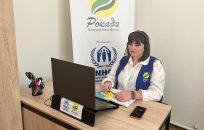
Healing dialogues: The psychological hotline offers support to displaced and war-affected people in Ukraine
8 Sep 2023Dial 0 800 331 916 for assistance; the hotline operates daily.
-
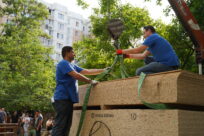
From asylum seeker to aid worker: one Odesa resident’s empowering journey
29 Aug 2023The full-fledged escalation of the war in February 2022 in Ukraine plunged 36-year-old Ali into a state of desperation. Having previously endured war in Afghanistan, Ali comprehended the far-reaching implications of large-scale military actions on the lives of civilians. “24 years ago, my parents took me and my brother and […]
-
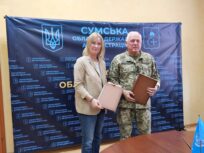
UNHCR and Sumy Regional State Administration pave the road towards even stronger cooperation to support people impacted by Russia’s full-scale invasion
23 Aug 2023Sumy, 23 August 2023 – UNHCR, the UN Refugee Agency, and the Sumy Regional State Administration today signed a Memorandum of Understanding that identifies key areas for joint support to people in Sumska oblast who are directly impacted by the full-scale invasion of the Russian Federation. To address critical needs […]
